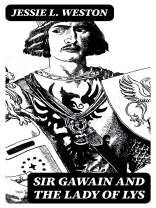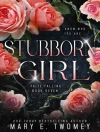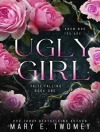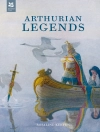In ‘Sir Gawain and the Lady of Lys, ‘ Jessie L. Weston reinterprets Arthurian legends through a unique lens, weaving together themes of chivalry, love, and moral integrity. Weston employs a lyrical yet accessible prose style, reflective of both medieval romance and early 20th-century literary movements. The narrative centers on Sir Gawain’s journey, encapsulating the essence of courtly love and the knightly virtues that define medieval ethos, while the Lady of Lys emerges as a complex figure challenging the norms of gender and power within this literary context. The intricate interplay of fate and choice in the characters’ lives is a poignant reminder of the enduring conflicts that resonate with contemporary readers. Weston, a prominent scholar of Arthurian legend and folklore, brings her extensive knowledge to bear in this work, having been influenced by her studies in mythology and medieval literature. Her passion for these themes is evident, as she seeks to bridge the gap between the traditional interpretation of Gawain’s character and the more nuanced portrayal of female figures in the canon. This effort illustrates her commitment to reconsidering the roles and motivations of women in historic narratives, fostering a richer understanding of their contributions. I wholeheartedly recommend ‘Sir Gawain and the Lady of Lys’ to anyone intrigued by Arthurian legend and its myriad interpretations. This novel not only offers a captivating retelling but also provokes thoughtful reflection on the changing dynamics of gender and morality in literature. Weston’s adept storytelling will engage both scholars and casual readers alike, making it a valuable addition to the library of any literature enthusiast.
Про автора
Jessie Laidlay Weston (1850–1928) was an independent scholar, folklorist, and authority on Arthurian legends, whose work contributed significantly to the study of medieval literature. Her focus on grail and romance literature translated into a series of notable contributions to the field, one of which includes ‘Sir Gawain and the Lady of Lys’, a study and edition of the Arthurian tale. A self-taught polyglot, Weston’s area of expertise covered a range of European languages that allowed her to access and interpret source material directly. Her literary style was characterized by a combination of rigorous scholarship and a passionate interest in her subject matter, which is evident in her detailed analysis and commentary on the text of ‘Sir Gawain and the Lady of Lys’. Weston’s broader work included ‘From Ritual to Romance’, where she posited an influential theory connecting the Holy Grail myth to ancient fertility rites, a text that later influenced T.S. Eliot’s ‘The Waste Land’. Her scholarly approach was rooted in comparing literature with folklore, myth, and religion, thereby bringing a multi-disciplinary perspective to the study of medieval romances. Though some of her theories have since been contested, her scholarship remains an essential part of the discourse on Arthurian literature. Weston was granted honorary degrees for her work, and her legacy as a pioneering woman in the field of medieval studies endures.












